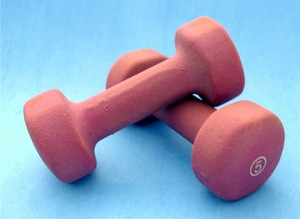It’s actually not safe for elderly people to avoid weight lifting. I’m a certified personal trainer. Look around you at typical elderly people. You can see the damage that not lifting weights has done to them.
Sure, more and more gyms are visited by elderly folks hitting the weight lifting machines. But strength training is fairly new to them. Look at the old-timers, however, who’ve been lifting weights for years; they look extraordinary. And it isn’t just about looks for these old folks; they are fit, strong, energetic, minimal if any aches and pains.
Old people must never believe that if they stop lifting weights, their new muscle will turn to fat. First of all, why would they stop lifting weights? Strength training can be done from a seated position, from a wheel chair, even.
Secondly, new muscle gain will not turn to fat; one type of body tissue cannot turn into another type. This is like saying that blood can turn into bone. People who “get fat” after quitting strength training gain fat because the food that used to be used as fuel to sustain muscle is now getting stored as fat, because the muscle is no longer there to be powered, because the person quit training!
Fat tissue and muscle tissue are two completely different kinds of tissue. When people stop working out and gain fat, it’s because they’re burning far fewer calories, yet continuing to eat in amounts that previously sustained the workouts. Unexercised muscles shrink and require less food for sustenance. This all translates to gat gain.
Another myth about lifting weights that elderly people need to stop thinking about is the one about not being able to build muscle after a certain age. Well, this isn’t about measuring how much muscle tissue you have or put on. It’s about getting fitter and stronger.
And when elderly people lift weights, they get stronger and more able-bodied. A frail elderly person can get stronger. Never mind if she still can’t compete in the Senior Olympics. Lifting weights will make everyday living easier for the elderly woman or man. The only people who can’t build muscle from exercise are dead.
Some older people believe that lifting weights will make them too bulky and get stiff muscles. I know and see plenty of senior citizens who are quite stiff, who have never strength trained in their entire life. Strength training does not make you get stiff muscles.
Lack of flexibility exercise does. Over many years, lack of stretching routines will result in a very stiff body. And lack of strength training will result in “rusty” joints.
Being big and muscular doesn’t look flexible. But what is flexibility supposed to look like? Some Olympic gymnasts are heavily muscled. And the very muscular women who compete in fitness contests display extraordinary flexibility. Many have dance and acrobatic backgrounds.
Conversely, haven’t we all seen non-muscular people at gyms who are as stiff as frozen taffee? Muscle-bound men maybe are often stiff, but this is because most men, in general, do not do stretching exercises in the first place.
How many muscle men want to be seen stretching on the gym’s ballet bar? That flabby potbellied man who looks like he’s never lifted a single weight in his life, is just as stiff as Joe Bodybuilder, if not more stiff.
It’s not safe for old people to lift weights” is another myth. Gee, where did this ever come from? It’s not safe for an old, frail body, that doesn’t do any weight lifting, to suddenly join a bowling league and attempt to toss a 10-pound ball down the lane. It’s also not safe for the out-of-shape senior to take up gardening, with all of its stooping over, kneeling, and other joint-stressing motions.
What about old people who stoop over and pick up grandkids? This isn’t safe, either, if their bodies aren’t conditioned. Old people need desperately to take up weight lifting so that everyday movements are easier, and less likely to cause injury or back problems. The term “weight lifting” or “lift weights” often brings images of heavy barbells being hoisted over one’s head. But “lifting weights” can also mean lifting soup cans about, to bring more conditioning to the shoulder joints.
Elderly people should lift weights. It’s that simple. This doesn’t mean try to exercise like young adults. It means get in the gym and start using the equipment, and start out lightly.
